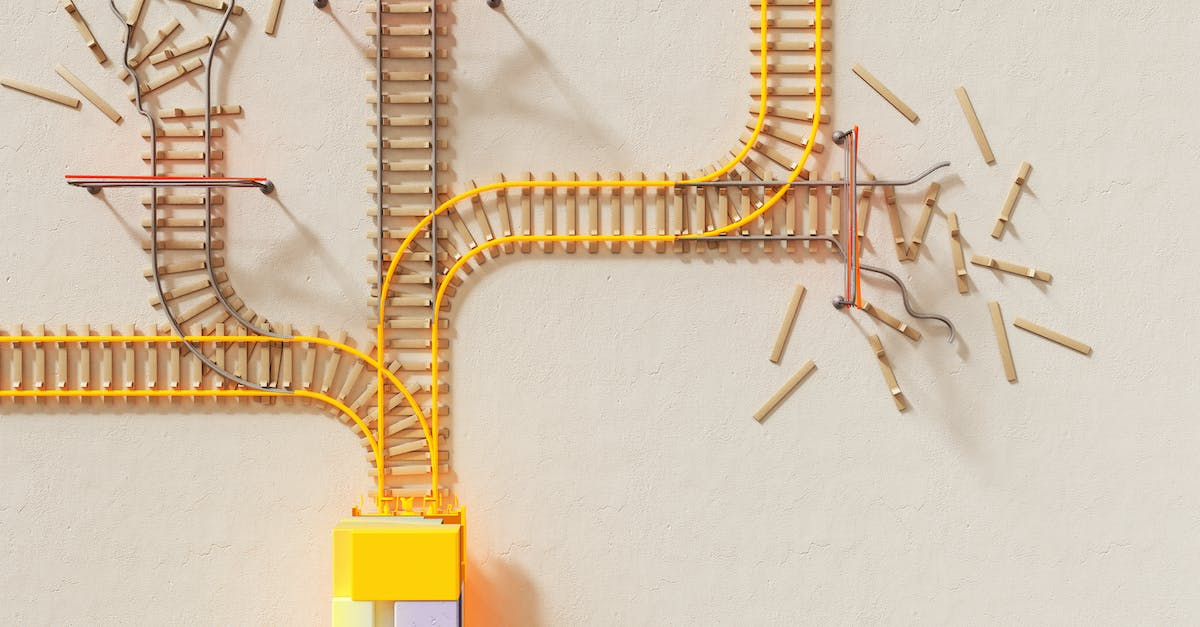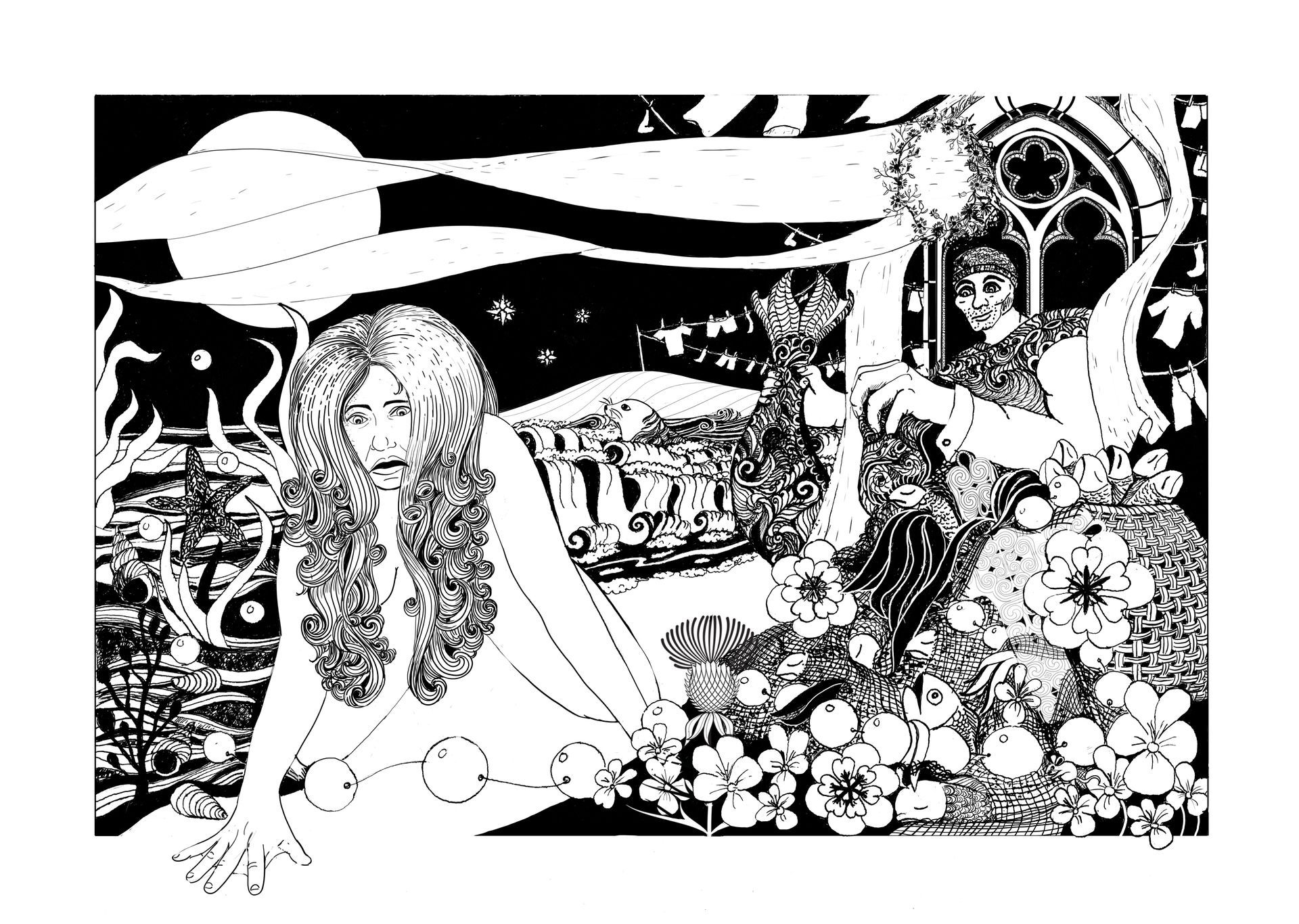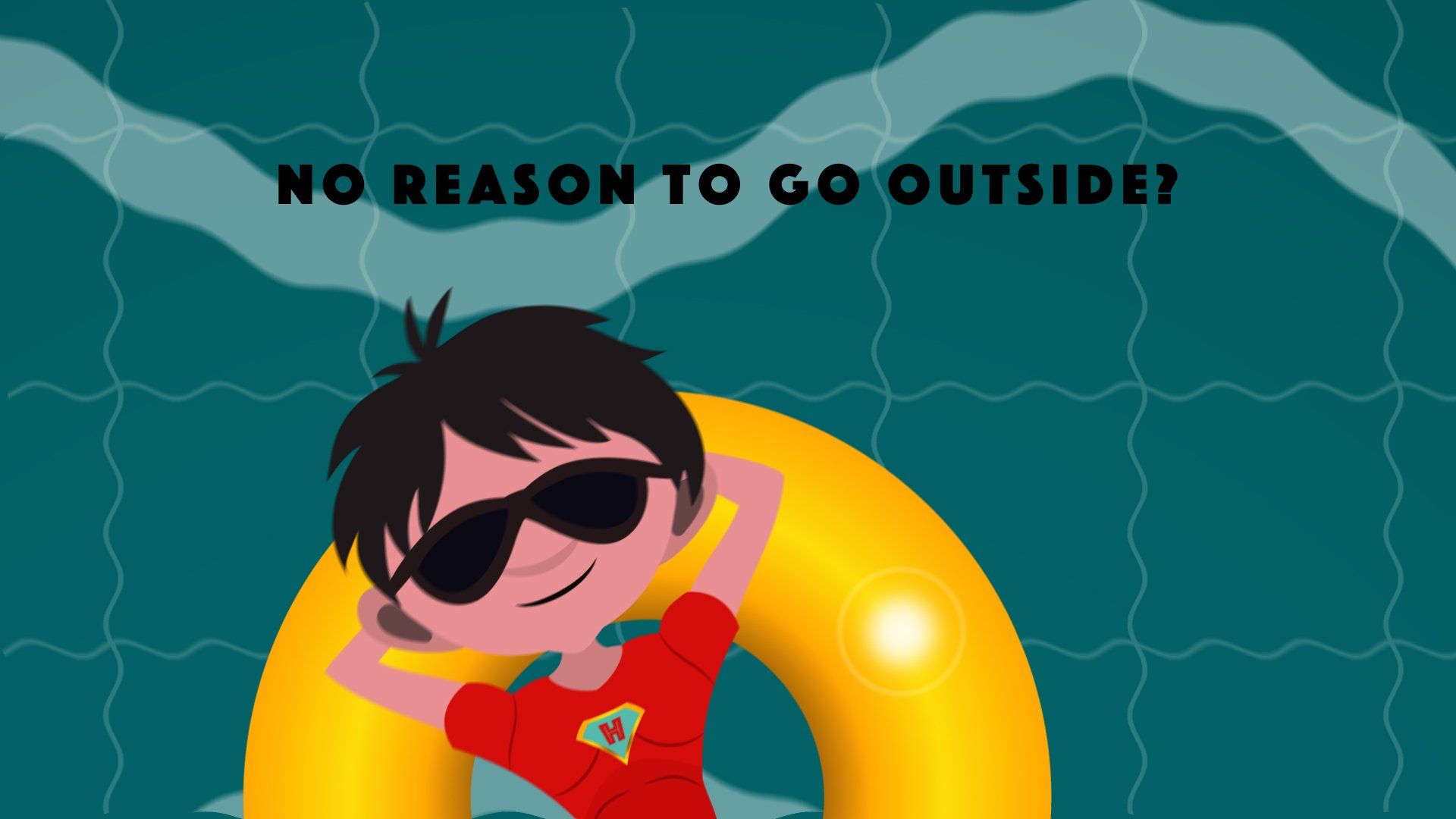Suspended
Daniela Brunner • April 20, 2020
Suspended
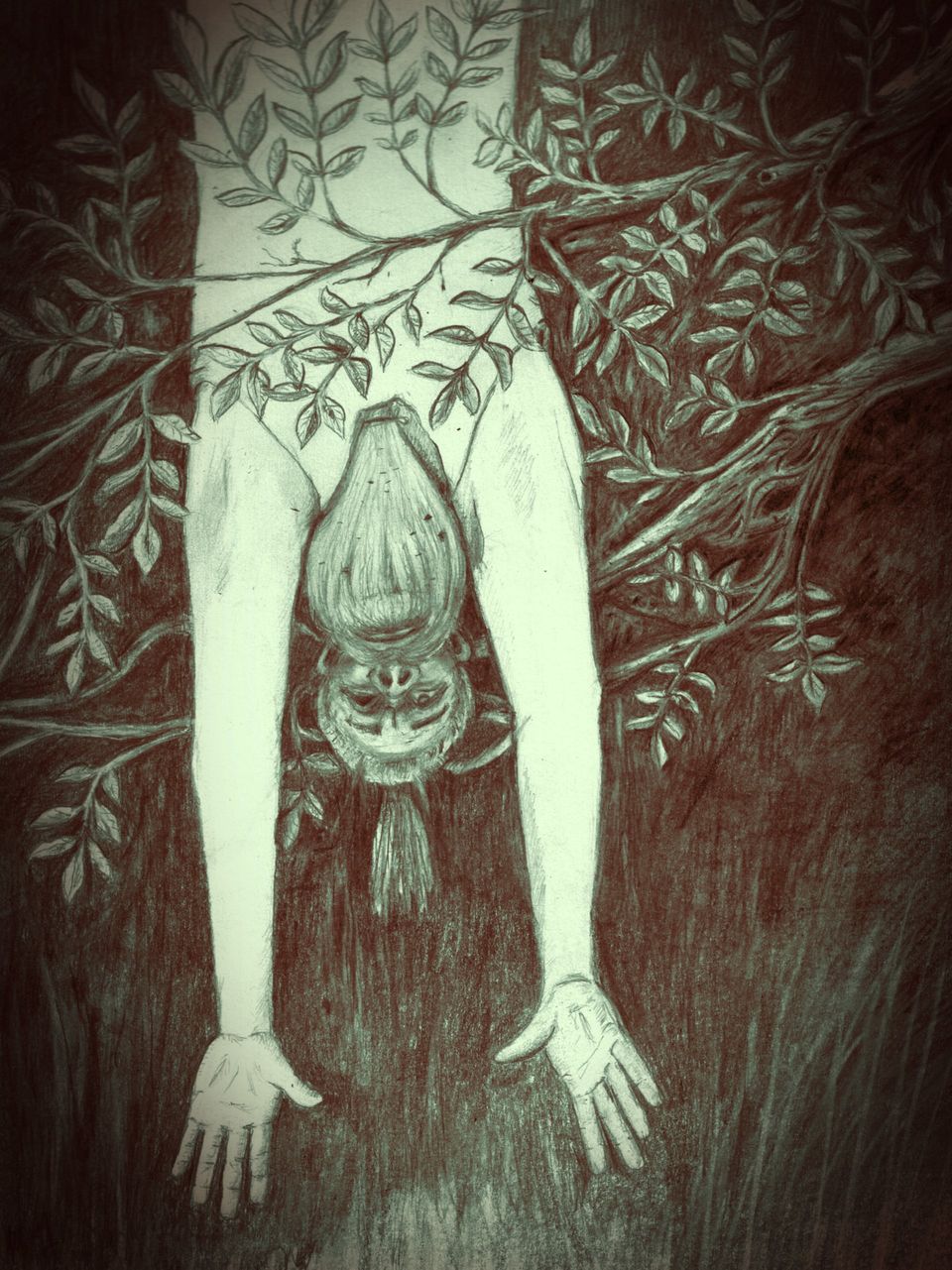
As the effects of the current pandemic are continuing to affect all of us in greater or lesser degrees, I became curious about the correlation of change and interruption.
EMDR
Having experienced EMDR treatment recently (Eye Movement Desensitization and Reprocessing) which, very simply put, minimises the effect of trauma by disrupting ingrained thought processes, I know first-hand that interference can generate very positive effects. So, when Covid-19 restrictions were put in place and my personal routines were interrupted I made a conscious choice to use this time of interruption as a tool of self-reflection and ultimately self-improvement, which means changing who we are to become who we’d like to be.
Drawing on my love of fairy tales and myths, the current crisis and, in particular, the restrictive quality of our lives right now, reminded me very much of Odin hanging from the world-tree Yggdrasil in Norse mythology which inspired the drawing above.
Odin's quest for enlightenment
Here’s a quick recap for those of you unfamiliar with the tale:
Odin, all-father decided that he wanted to know more about the world he saw before him and decided to do something about it. I imagine that he pondered how to wise up and eventually the idea of self-sacrifice struck him as a possible way to gain wisdom. He sacrificed one eye in Mimir’s well and, for good measure, threw himself on his spear Gungnir. Not done yet, Odin hung himself in the world tree Yggdrasil for nine days and night nights. It is said that he gained knowledge of the world and the runes during his ordeal which allowed him to e.g. cure the sick, calm storms and, very important from a heterosexual male perspective, make women fall in love with him.
Counter-intuitive
What fascinates me about this tale is that Odin gains knowledge in a most counterintuitive manner. It would seem rather more sensible to set out and travel the globe, study at the feet of masters and listen to their tales of wisdom. Instead he self-mutilated and hung himself in a tree from which perspective, I dare say he’d been able to see very little of the world around him. Yet in keeping himself still, isolated and, excuse the pun, suspended he emerged wiser than before.
Change by interruption
I would argue that this tale illustrates that it is sometimes wiser to stop, keep still and look within in order for true insight to occur. By depriving ourselves from the pleasure of routine we also free part of us to examine if that daily rhythm really furthers our innermost desires, something which is much harder to do when we’re blindly caught in endless, unconscious reiterations.
It is therefore not surprising that many religious and spiritual practises around the world claim that a period of complete withdrawal is just the ticket to achieve a higher state of consciousness. It would also explain the popularity of retreats that haul you out of your mansion into the most simplistic of settings and serve you unpretentious food. Then you’ll be given a new routine where you greet dawn in summer and hit your bed way before the sun sets and, to make matters worse, forbids you to socially interact. So no ranting and complaining either.
Global disruption = global change?
The Covid-19 crisis’s power of disruption on a global scale offers an opportunity to collectively increase our awareness of how we are shaping our own life and ultimately the planet by thoroughly suspending our ingrained routines. This may lead to global change if we allow the desire for transformation to take root starting and ending with ourselves. There are a lot of positive noises out there if you follow the media. People vowing to work more from home, travel less, even question whether consumerism should be at the centre of our economic policy. I would encourage us all to look deeper, suspended from normal routine and emerge stronger and changed from this period of withdrawal.
Perhaps we may not quite achieve Odin’s state of total enlightenment but a little bit more insight, self-control and determination would be nice.
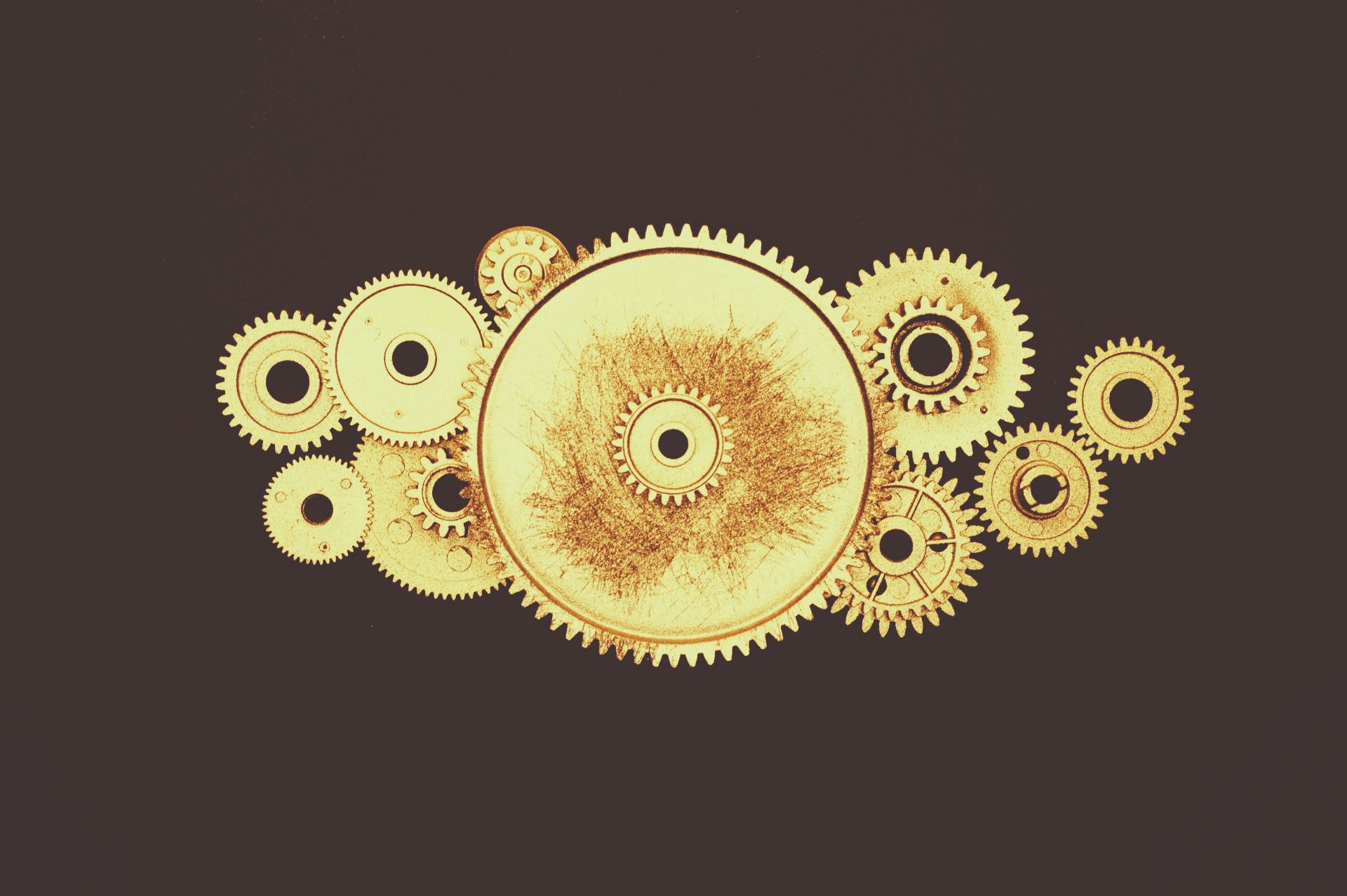
The thought ‘How human of me’ frees us from the lie that we are always able to perform at a steady pace in a predictable, clockworklike world and focuses our attention on universal human needs such as belonging and the search for meaning. It fosters much needed compassion for us and others which makes us truly human.

Illustrated helpful thoughts to bring your thought work to the next level. What makes this borrowed thought 'Comparison is the thief of joy' so powerful is that it confronts us with the negative consequence of comparison: loss of joy. Interestingly enough, it is not the ability to see difference that robs us of pleasure but the value judgement we attach to perceived diversity. Let’s explore that concept in more detail.
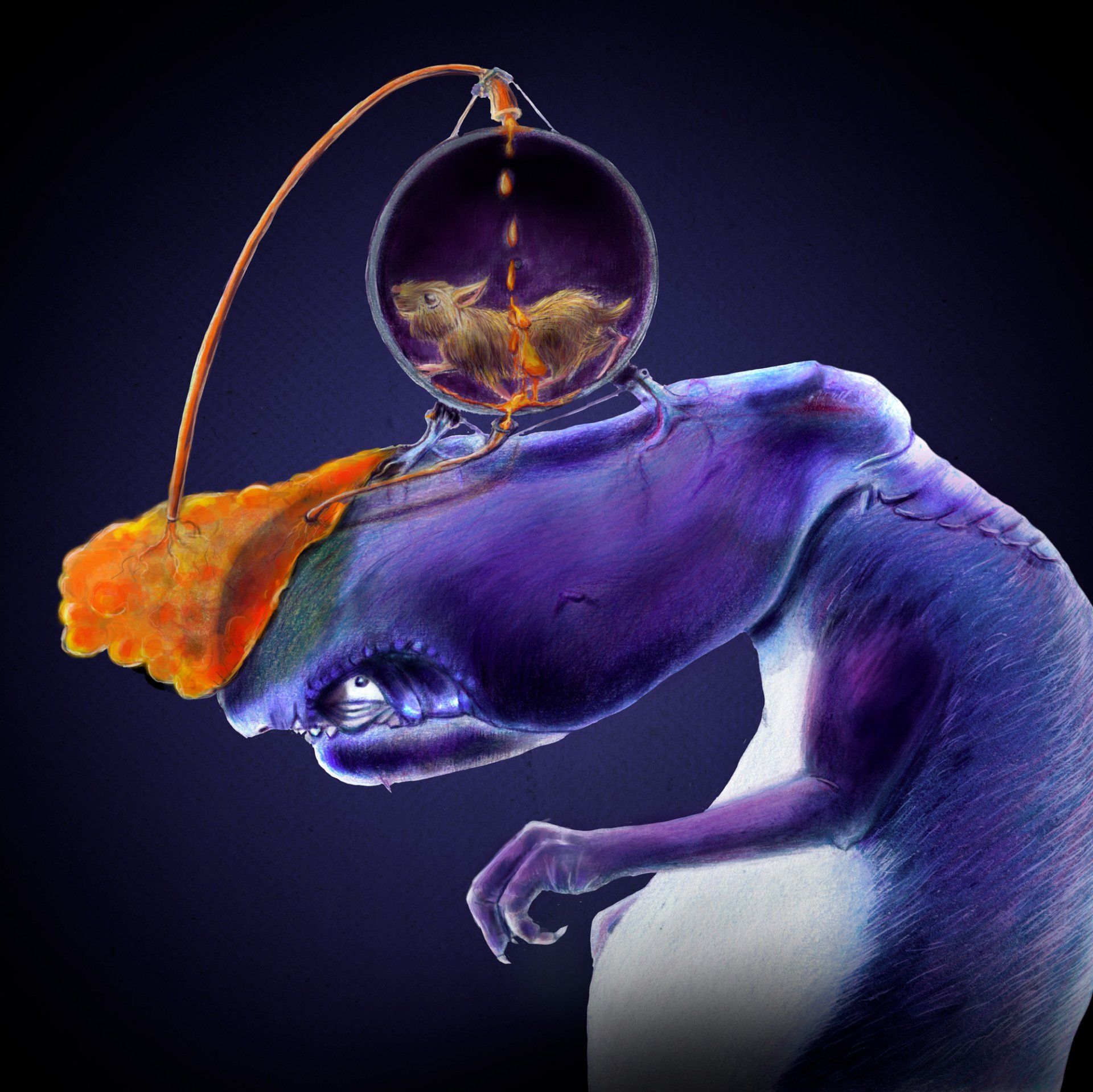
Feed me When the Worrier is in control, attacking my mind with endless repeats of unhelpful thoughts, my body feels weak and defeated. Its constant recycling of negativity into new packages of pain keep me chained to the wheel of helplessness. Two decades ago, I would have instinctively turned to food for comfort, a few moments joy before the inner torment would break over me like a wave dragging me into its depths. Luckily, 16 years ago I have found another way to disrupt the endlessly turning wheel of misery and grief. Entering the gym arena At the age of 35, I had already lost a considerable amount of weight and the idea of joining a gym no longer horrified me. I was still, in my eyes, the fattest, most unfit person lifting weights and hitting the cross-trainer there, but I did give myself some credit for at least trying to get into shape. However, motivation was becoming a problem because I did not become the lean, mean machine I had envisaged quickly enough. So, I turned to group classes instead hoping to find inspiration and drive when the Worrier whispered its poison into my ears. After trying several different types of guided workouts, I had walked into a kickboxing class, expecting to feel just as out of place and overwhelmed as I had in all the others. The lessons started with the entire class comprised only of the fittest of the fit, and me, lining up whilst our trainer ordered us to flex our ab’s. Just as I was wondering if I had any and where to find them exactly, he started kicking the first person in line into the stomach with what I now know as a front kick. They all heroically stayed vertical and just had to retreat a few steps. When it was my turn, I only had time to prepare myself to be knocked back badly. But the hard impact and humiliation never came. My trainer had the sense not to push too hard and I learnt one important lesson that day: It’s enough to just stand your ground. Fighting fit From that day on I became not the best but the most loyal student. When a kickboxing lesson was scheduled I was there. When I fell, I got up again. When I had pain, I endured and carried on. It made me realise that I could take a lot more than I thought, that I was stronger than I had ever imagined. I became not only physically fitter but also mentally stronger, something which was severely tested in the months to come. Around the time that I slowly got the hang of all the kickboxing moves and felt part of the group, my husband got ill. When he was diagnosed with terminal lung cancer I was faced with another internal choice: return to food or workout for comfort? I chose to stay active and punched and kicked myself through the coming weeks and months as my husband became weaker and closer to death. Telling no one at the gym, except my trainer, was also helpful because these were the only moments in my life where I was not seen and pitied as the wife of the dying husband. During the lessons I could be myself, forgetting for a while that tomorrow we’d go for another chemotherapy or hear bad news from his doctor. After his death less than a year after diagnosis I worked out almost constantly and eventually got together with my new partner and now husband whom I met in kickboxing class. Defying the Worrier Since then, kickboxing has become my constant companion, my lifeline pulling me through dark times, keeping me physically and mentally strong in the knowledge that I do not have to win, be the strongest or best because all of that will one day fade away. I just have to be there, turn up, stand my ground, face my fears. Then the Worrier doesn’t get a chance to pull me back into its endless cycle of pain, grief and self-pity. I have accepted that I cannot perhaps defeat the Worrier only control it by staying and feeling strong. Then it becomes just another opponent, another challenger and all I have to do is face it, stand my ground. That is enough.
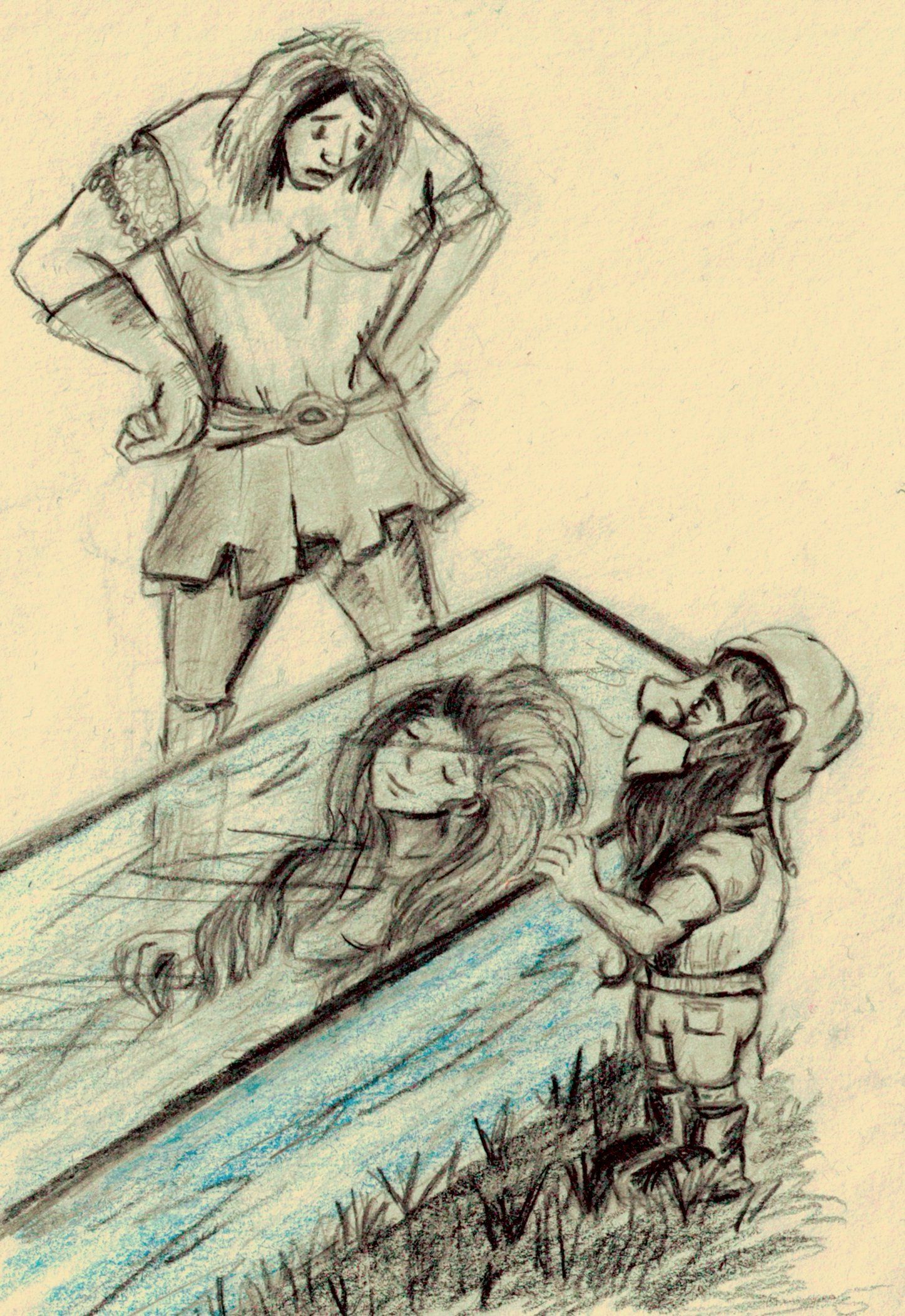
After an arduous journey, days of endless questing and dragon slaying the prince finally reaches the clearing. There, in a fine glass casket, lies the most beautiful creature he’s ever seen. He bends down, ready to kiss her when suddenly, a dwarf rushes out. His face is covered with a piece of cloth, his hand slams on the glass lid as he says as clearly as possible from under the mask and beard: “All you can do is wait, mate. Come back in two weeks and we’ll see where we’re at then.”
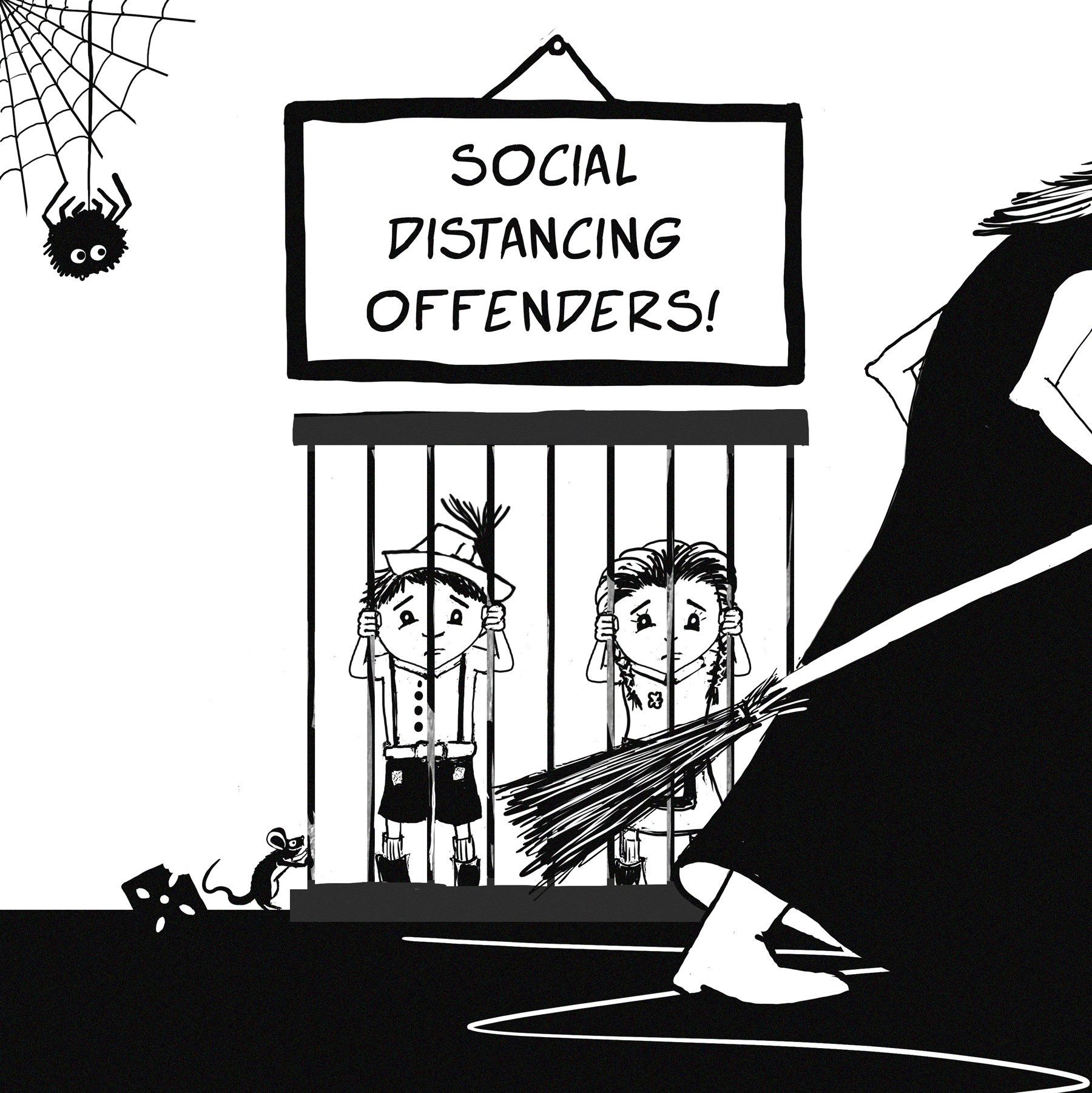
They knew it straight away! It had looked too good. It had smelt too good. And it had come with a warning. But the cookies and candies had been so tempting that they had ignored the by now familiar 1,5 metre sign and creaked open the gate to the old woman’s cottage. They had taken only one bite when the old hag had loomed behind them pressing them flat against the cottage with her broom keeping them away at a safe distance from her. “Can’t you read, miserable scum?” she shouted. “At my age I’m at risk. You’ll pay for that”. She shoed them into a cage usually reserved for her special breed of large chicken and locked it tight. ‘At least I’ll have a full larder now,’ the old woman thought as she went inside her cottage and closed the door.


